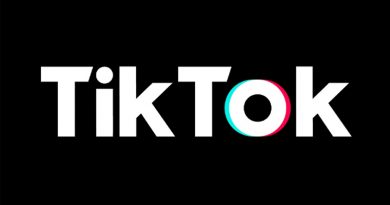Understanding the attitudes and behaviors of Internet users in the Middle East and North Africa
Posted by: Damian Radcliffe
Compared to their global counterparts, online users in the Middle East are among the most enthusiastic about the positive impact that the Internet is having on their lives.
Mapped against the world average, they are also more supportive of the idea that government authorities should block harmful content online that is ‘racist’ or ‘discriminatory’; or potentially damaging to children.
And despite the region trailing in terms of take-up of eCommerce and online banking (where it ranks lowest in the world), MENA respondents rank Banks and Financial Institutions as the online players they trust the most.
These are just some of the key conclusions from a new 14 nation study that I wrote as part of my day-job at Qatar’s Ministry of Information and Communications Technology (ictQATAR).
Exploring a range of topical issues such as cyber safety, online security and data privacy, it was the first time these issues have been covered in this depth; with results from an online survey benchmarked against an existing dataset from the World Economic Forum.
Comparing conclusions from our online survey of 2,793 Internet users in the region with 8,432 further respondents from 44 other countries across the globe, allowed us to not only understand the Middle East Internet user as never before; but to also be able to map their attitudes and experience against other regions.
What this showed was that MENA is not an outlier.
Although a diverse and large region (to give you a sense of scale, it would take me longer to fly from my home in Doha to Casablanca, than it does to Moscow or London), attitudes across the region were surprisingly homogeneous – both across our North Africa and GCC (Gulf) samples; and when mapped against global averages.
Internet users across the globe, for example, display very similar levels of concern towards safety issues such as having their email or online accounts being hacked, whilst users in emerging Internet economies are much more likely to use online tools of creative expression – such as blogging – than in areas where the Internet is more established.
Meanwhile Middle East users lead the way in terms of adopting technologies such as VoIP, and they also enjoy some of the highest levels of satellite TV adoption anywhere in the world; with many homes also being hooked up to cable too, reflecting the continued importance of TV in this region.
In undertaking this work, the Ministry worked in partnership with the Oxford Internet Institute at the University of Oxford, and the Samuel Curtis Johnson Graduate School of Management at Cornell University. The fieldwork was conducted by two of the world’s leading market research firms; comScore and Toluna.
Below I’ve shared ten – Middle East focused – conclusions from the research. Anyone interested in reading the full 20,000 word study (or a 5,000 word summary) can download them from the Ministry’s Rassed research programme; or my academia.edu page. If you want to know more, then do comment below – or feel free to email me directly.
Understanding the Middle East Internet user, 10 key findings:
-
The majority of Internet users in MENA access the web from home.
-
They are considerably less likely to make online purchases or do online banking compared to other regions.
-
MENA Internet users are considerably more likely to agree with the statement that “the Internet is making things better for people like me” – when compared to the world average.
-
They are also more supportive of the idea that Government authorities should block harmful online content than users elsewhere in the world.
-
When compared to the world average, MENA Internet users show similar levels of concern about their online communications being monitored. Nonetheless, a sizeable number are also quite relaxed about this issue.
-
Internet users in North Africa are much more inclined to believe that their personal data is safe online compared to other Internet users in both the Gulf Cooperation Council (GCC) and globally.
-
Amongst different online players; banks and financial institutions in the region enjoy the highest levels of trust, followed by health and medical service providers and Government authorities.
-
Nearly 50% of MENA’s Internet users say they are “very careful” about what they say and do on the Internet.
-
Despite this, they are among the most likely to open attachments, documents and emails from senders they do not know; and amongst the least likely to scan their computer or mobile device for viruses and spyware.
-
They are also among the most likely to meet people online that they have not met in person, and are more likely to accept to be “friends” with someone online – or to make “connections” with people they do not personally know – than users in any other region.

